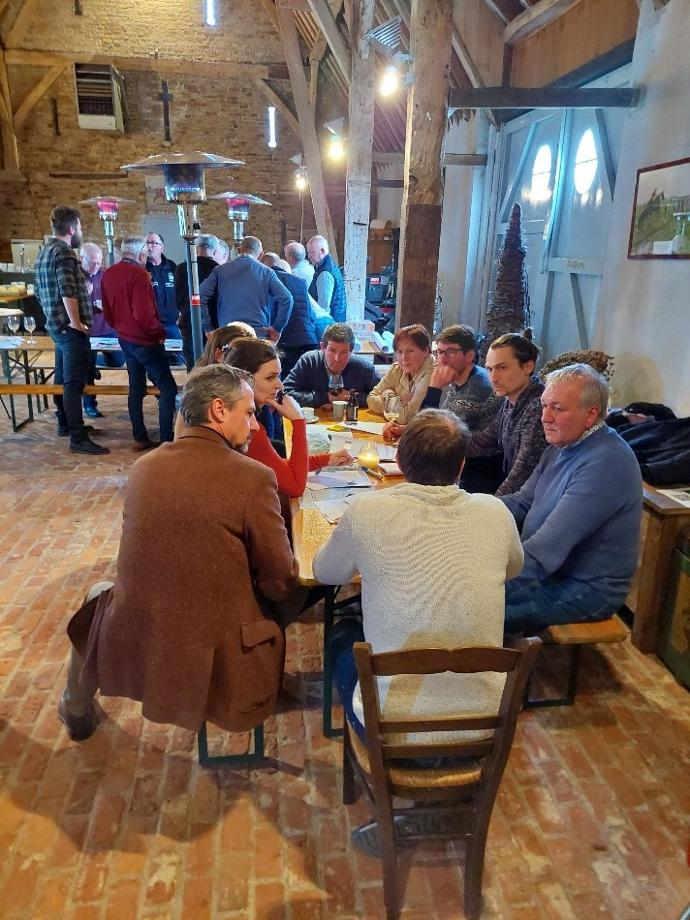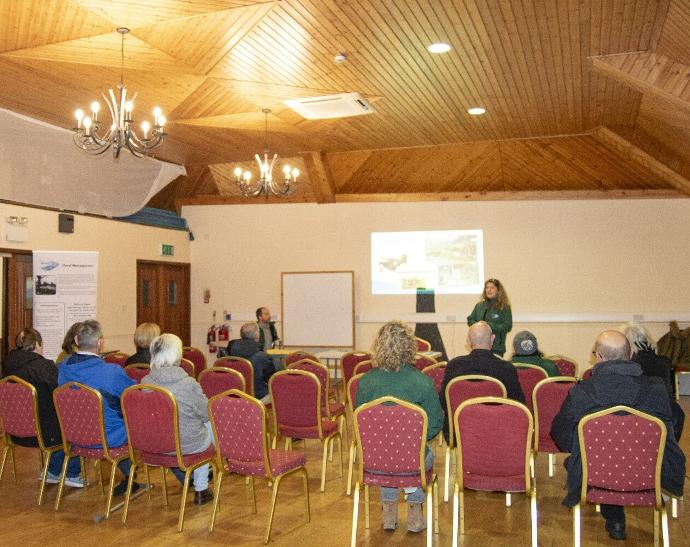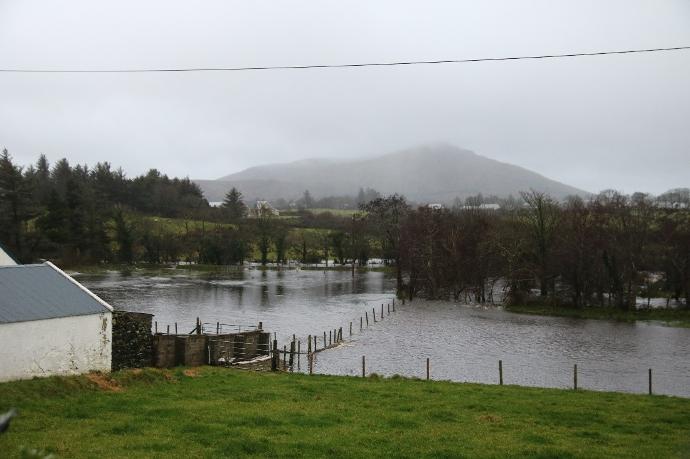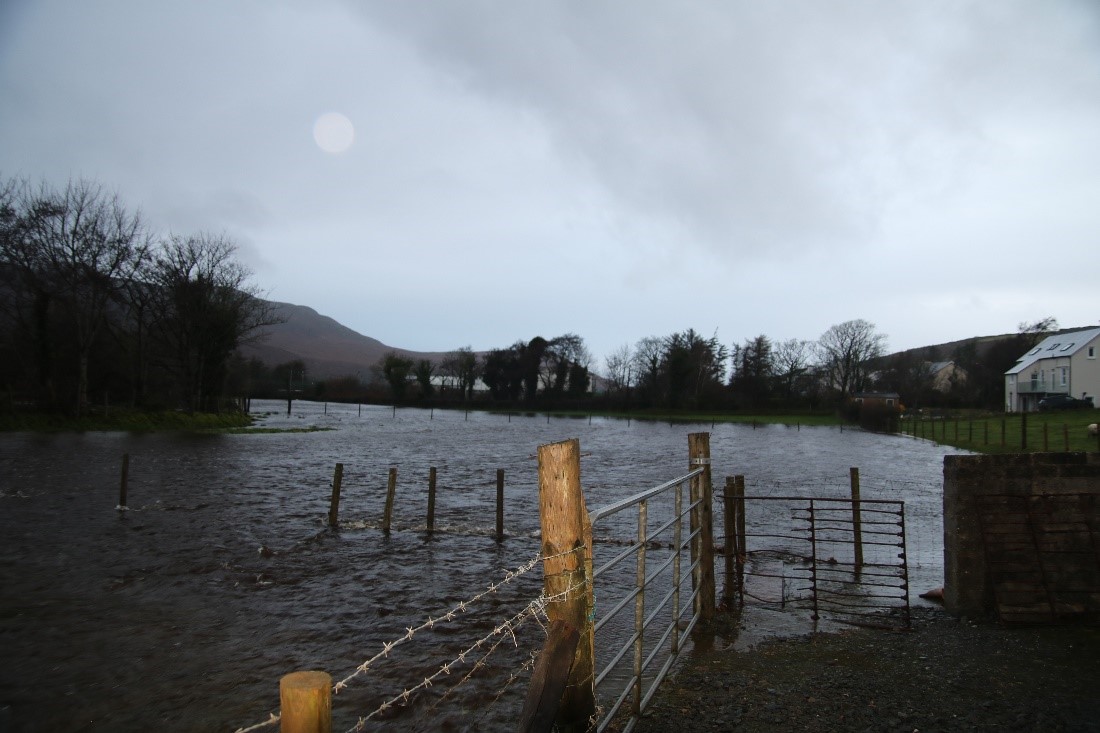As part of the BUFFER+ Interreg NWE project, The Rivers Trust (TRT) in Ireland has engaged with landowners and farmers in pilot areas, demonstrating how rewetted peatlands can be productive for farmers in County Mayo, Ireland, and providing flood alleviation solutions in County Donegal.
What is The Rivers Trust (TRT)?
The Rivers Trust (TRT) is a leading environmental charity that operates in Ireland, Northern Ireland, and Great Britain, focusing on protecting and enhancing freshwater and wetland ecosystems. They use Nature-based Solutions (NbS) and Natural Flood Management (NFM) to tackle environmental issues.
Introduction of BUFFER+ to local community
The BUFFER+ project was introduced to the Donagh-Moville catchment community in County Donegal, Ireland, by the Inishowen Rivers Trust (IRT). Local members of the Inishowen Rivers Trust presented information about BUFFER+, it’s aims and how farmers and landowners could benefit. It took place in Clonmany Market House which was advertised through local newspapers, church newsletters, social media, and physical posters in the area while landowners were engaged with personally and invited to the event. The event explored community interest and addressed questions about the project. This information event was followed by a Q+A session which allowed space for community members queries to be heard. Flooding and water quality are serious concerns for this community, and understanding how a project might provide solutions is key to TRT’s community engagement.
Following steps
Next steps for the community include fostering one-on-one dialogues with peatland landowners and commonages. The Rivers Trusts newly appointed BUFFER+ Peatland Restoration Project Officer, Barry McLaughlin, will support discussions to enhance the restoration efforts in collaboration with the Inishowen Rivers Trust. Together they aim to engage the local communities to raise awareness of BUFFER+ objectives and collaborate on re-wetting strategies, with the current objective of securing our 'pilot sites'.
Communities coming together to discuss the local context and benefits of a transnational project like BUFFER+ are vital. Such discussions ensure the enfranchisement of rural communities while restoring habitats and natural systems such as peatlands. This approach underscores the importance of collaboration and engagement with communities in environmental conservation efforts.
West Flanders
In West Flanders, the province also reached out to the local farmers to discuss to opportunities of new value chains after rewetting, which are objectives within BUFFER+. Attendees included key figures such as farmers, representatives from local authorities and environmental organizations. The meeting commenced with a welcome from Deputy Bart Naeyaert, outlining the agenda.
Key points were:
- Discussion of the restoration plan for Romboutswervepolder: proposal discussed includes river bank adjustments and installation of various water control mechanisms.
- Voluntary agreements with farmers to create a symbiotic relationship between agriculture and nature.
- Discussion on the possibilities of landscape restoration.
- Monitoring Network and Soil Analysis.
- Eco-Schemes, Management Agreements and voluntary demonstration measures.

The meeting highlighted collaborative efforts to integrate sustainable practices, benefitting both agriculturally and environmentally in Romboutswervepolder.
Approaching locals
We see that the introduction of BUFFER+ to the local community, should be done carefully. In order to have pilots on peatlands and improve the biodiversity in peat areas, the local farmers need to be willing to contribute in such pilots. It is important to not ask too much of the farmers, but inform them carefully. How to proper approach the local community is a challenge that occur in all the five regions of Interreg BUFFER+. We therefore share our lessons learned and experiences on community engagement, within the partners network.


